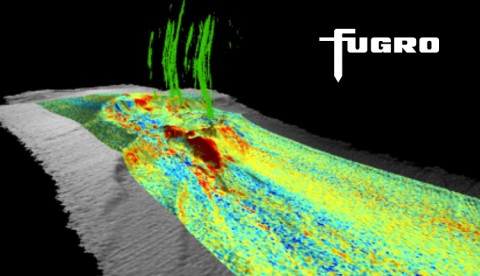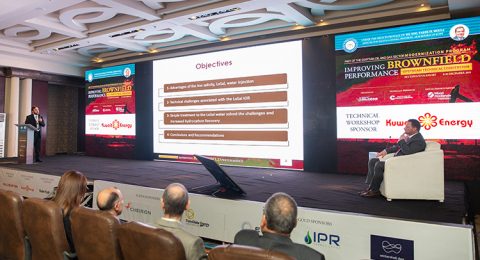By Hugh Fraser, Managing Partner of Andres Kurth MENA office and Legal Specialist in International Energy Law
The Mediterranean Offshore Conference that will be held on 19th – 21st April in Alexandria will be dominated this year by the impact of the major ENI Zohr Gas Field and BP West Nile Delta projects, which between them are anticipated to involve $27b of investment. This is an exciting time in Egypt’s offshore oil and gas development. The West Nile Delta (WND) project will involve a water depth of 800 meters and the Zohr project dives even deeper to 1,450 meters out in the Mediterranean. Egypt’s credentials as a deepwater producer are therefore being firmly set, and with it, the needs for the advanced technology and know-how that successful deepwater development and production entails.
Deepwater activities also magnify the risks and the challenges to the operators/investors and to the supply chain contributing to the project. Even in the current competitive market, risks associated with project delays and cost overruns are greater and the loss of production and damage to reservoirs and wells can have an exponential impact relative to onshore or shallow water problems. The risks associated with damage to the environment, to people, to facilities, vessels and rigs, to property and equipment, and to third parties are ever-present subjects in properly negotiated and executed contracts. For foreign players participating in the local market, there is the added challenge of compliance with Egyptian law and practice, which in some cases may involve statutory requirements, which may over-ride contractual attempts to state a contrary position. The experience of and lessons learned in places such as the North Sea, Gulf of Mexico, Brazil, and West Africa can therefore serve well and avoid wheels being re-invented in the Egyptian deepwater scene.
Egyptian Offshore Industry Risks
The management of financial risks entails an understanding and acknowledgement that the local market is more familiar with fixed price lump sum arrangements rather than the reimbursable contracts, which characterized the Gulf of Mexico and North Sea. Security of payment has been a major theme in recent years in Egypt although major strides have been made to pay down revenues due to oil companies, with debts now believed to be below $3b. Devaluation fears in relation to the USD/EGP conversion rate and constraints have been major topics in the early part of 2016 but on both fronts the Egyptian Central Bank has made major moves during March and the official exchange rate has been re-set at EGP 8.95 to $1. Withholding tax is generally set at 20% and this remains a significant brake on the ability of overseas suppliers to access the market.
The risks and challenges associated with deepwater projects also emphasize the fact that higher levels of know-how and technology are needed. This brings into play the needs to protect ‘trade secrets’, which are relevant to competitive edge, and to recruit and retain specialized personnel and to inhibit the prospect of “poaching”. Patented technology must be properly protected within the territory alongside other relevant intellectual property such as industrial designs and copyright materials. Fortunately, Egypt is a full member and participant in the World Intellectual Property Organization (WIPO) and the WTO’s Agreement on Trade Related Aspects of Intellectual Property Rights (TRIPS).
Techniques for Managing Deepwater Challenges
There are six main techniques to be deployed in managing legal and related commercial risks associated with deepwater projects: proper planning and due diligence; contracts; insurance; bonds and guarantees; legal compliance checks and audits; dispute management. Building and maintaining excellent relationships underpins the whole process.
Planning and due diligence, in addition to internal practices and policies, should involve referencing applicable trade industry organizations, consulting with non-competitive peer group players, sourcing and properly utilizing local partners – who can be invaluable guides to the challenges of client vendor registration and payment hoops, importing processes and local premises and supplier options – and appointing experienced local advisors who can assist to navigate the taxation, legal, and insurance lanes.
Well negotiated and executed contracts can have a huge impact on gained or lost value. Such contracts must speak accurately and precisely to a number of key themes and issues: scope of work and variations; remuneration and payment terms; work program and liquidated damages; standards of performance and warranty period; liabilities, indemnities, and insurance; bonds and guarantees; in-country value and local content; sub-contracting and back to back terms; confidentiality and intellectual property; termination and suspension; and governing law and dispute resolution. The price of poor contracting can run into billions of dollars in deepwater projects.
A properly maintained insurance scheme is a fixture in an effective risk management program. Very few contracts in the industry will not speak to third party and employer’s liability insurance requirements – and, depending on the players and the projects – also construction all-risks; hull and machinery; buildings and property; professional indemnity; and credit risk insurances may all be in play. Key issues arising will be insured levels, deductibles, and exclusions; procedures claims; and waivers of subrogation rights.
The use of bonds and guarantees is a major feature of the market and the impact of deepwater risks means the bolts need to be bigger and tighter in this context. Any risk management program must take account of the need for parent or shareholder guarantees – and the substance of these, given current market conditions, and the need for performance and retention bonds, which may involve big numbers in deepwater projects. The availability of letters of credit (LC) should always be referenced and the advisability, capability, and associated costs of seeking confirmed letters of credit, when offered LCs from local banks with whom the beneficiary has no track record.
A fully thought through legal compliance program (LCP) pays tribute to the concept that prevention is far better than cure. And so it is in legal terms given the cost, time, and damage to relationship issues, which can all be major downsides if something goes wrong. An effective LCP must pay attention to some key themes: business licensing and registrations; local ownership and management rules (fortunately benign in Egypt); local employment, visa and training laws and regulations; local procurement; ethics and anti-corruption; taxation; unfair trading and competition law; environmental protection laws; and sanctions compliance – where Egypt may be used as a transit point for business activities focused elsewhere.
Prevention is of course not always possible and if a cure is needed this may involve damage limitation focused on dispute resolution process. These may entail one to one negotiation at one end of the spectrum, with full blown litigation at the other, and with mediation, expert decisions, and arbitrations in the middle. Egypt has a long established and respected arbitration forum in Cairo but the scale and complexity of deepwater projects will inevitably put pressure on senior management teams to plump for international arbitration forums and rules to govern their contractual disputes. However, investment in long term and trusted relationships can go a long way to preventing these circumstances arising or managing them when they do.
Let us hope that Zohr and WND are the start of what will prove to be a much wider and extensive deepwater oil and gas industry based in Egypt and that Egypt can accelerate its deepwater risk management learning curve from a strong and effective combination of international and Egyptian experience and expertise. Roll on MOC 2016.








